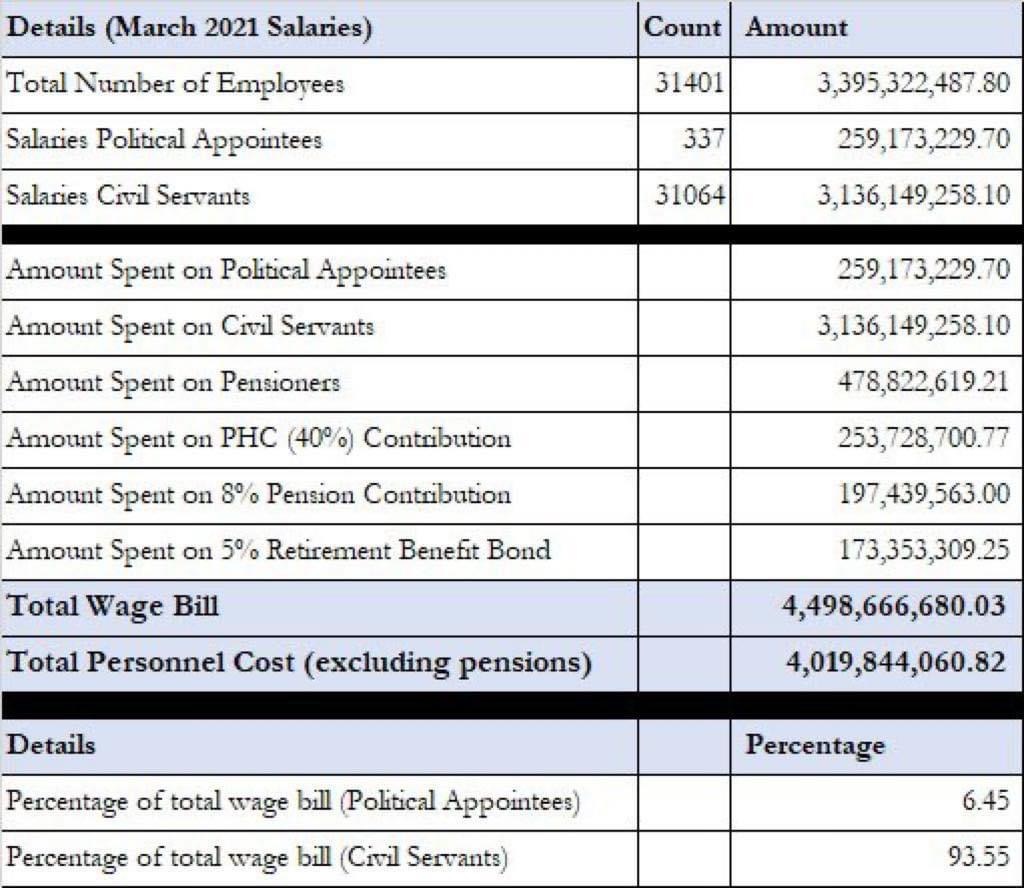As part of its efforts to manage its fiscal challenges and preserve its capacity to serve the entire state, the Kaduna State Government announced in April 2021 its intention to rightsize its workforce.
This exercise would affect political appointees and civil servants in the public service of the state with personnel strength of less than 100,000. The state, which was the the first government to begin paying the minimum wage in September 2019, will continue to honour this commitment.
In April 2021, the KDSG also released details of its FAAC receipts and personnel costs in the six months leading to March 2021. These figures showed that personnel costs account for between 84.97% and 96.63% of the state’s FAAC revenues. In November 2020, KDSG had only N162.9m left after paying salaries.
That month, Kaduna State got N4.83bn from FAAC and paid N4.66bn as wages. In March 2021, the state had only N321m left after settling personnel costs. The state got N4.819bn from FAAC and paid out N4.498bn, representing 93% of the money received. The balance cannot cover the funding requirements for standing orders, security and other costs essential to running the government, and the total does not include the wages of local government staff.
It is difficult to quarrel with the starkness of these figures. But some who disagree with the decision to rightsize that is its consequence have alleged that most of the state’s personnel costs is devoted to paying political appointees. The facts conclusively refute this baseless claim. State civil servants accounted for 93.55% of the total wage bill of N4.498bn in March 2021.
There were only 337 political appointees among the 31,401 direct employees of the Kaduna State Government (distinct from those working for the 23 local governments) as at March 2021.
The state government’s total wage bill in March 2021 was N4.498bn. That month, the direct salary bill was N3.39bn, as the 31,064 state civil servants earned N3.13bn, while the 337 political appointees earned N259.17m. Other components of the monthly wage bill were: payments of N478.8m to pensioners on defined benefits, N253.72m as the state government’s 40% contribution to the salaries of primary healthcare workers, N197.4m as 8% pension contribution and N173.3m for the 5% retirement benefit bond.
It has been suggested that the state government should also use its IGR for maintaining its machinery.
KDSG has emphatically rejected the expectation that it should use all of FAAC revenues and most of its IGR to run itself and pays its less than 100,000 persons workers.
The Kaduna State Government is persuaded that it is more sustainable to advance the interests of its employees only within the larger picture of the interests of the entire state.
Special Adviser to the Governor
(Media & Communication)
Signed
Muyiwa Adekeye

